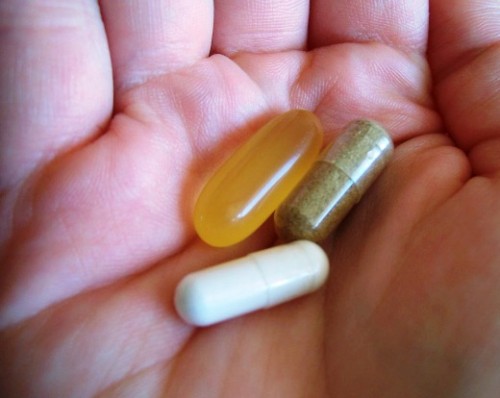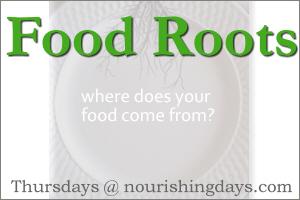Choosing Superfoods & Supplements

This article was originally written on May 6th, 2009.
It would be great if we were in good enough health to simply continue to eat the nourishing food that we’ve always eaten and not worry about needing supplements to boost our health. The problem when you’ve only eaten this way for a few years is the “continue to eat” part. If you are like me then you have 20 some years of damage to make up for.
Still, I believe that when we are trying to maintain or boost our health our largest focus should be on eating nutrient-dense foods. Taking a supplement while continuing to feed our bodies garbage is not only counterproductive, but harmful.
Speaking of harmful… many of the commercially made supplements can be harmful. The vitamins and minerals are either in a state our body can’t absorb or are actually harmful to the body. So always look for high quality supplements.
Ways to Increase Your Vitamin/Mineral Absorption
- Eat food with enzymes. Enzymes help you to digest food more easily and absorb the nutrients from that food. So by eating more raw and lacto-fermented foods you can increase the nutrition absorption in your body. (looking for cultures or starters for cultured foods? find them here.) (looking ready made lacto-fermented foods? you can find them here.)
- Eat fat with your meals. We, as a nation, are desperately lacking in the fat soluble vitamins such as A & D. Even if this food is present in your meals, if you are lacking in healthy fats you can not absorb them. Put olive oil on your salad, make a butter sauce for your seafood and stir fry those vegetables in coconut oil.
- Don’t eat sugar. Sugar depletes the body of nutrients, specifically B vitamins. Also, cut way back on even natural sugars. We were not meant to eat sweets daily as we do now.
- Cut back on grains and make sure that they are properly prepared. Large quantities of grains can also block absorption of minerals. If you soak/sprout/ferment them they are much easier to digest and won’t block mineral absorption. If you’re looking for a good source of sprouted grain flour you can find it here.
In doing the above we are able to maximize the nutrients that we get out of the food we are eating. Sometimes we still need added nutrients to boost our health. This is where superfoods come in.
Superfoods To Boost Your Health
Consider taking some or all of the following, depending on your specific health needs.
- Probiotics. There is nothing more important to your immune system than having a gut that can absorb nutrients. Probiotics may be where you want to start because if you have taken antibiotics or had a sugar/grain heavy diet (like me) then your gut is probably in need of some good bacteria. Unfortunately not all probiotics truly work in your gut as they claim to, so find a good one.
- Cod liver oil. This should be in everyone’s daily repertoire as it supplies vitamins D and A in the correct ratio as well as omega-3 fatty acids.
- Butter oil. Containing the X factor that Dr. Price found, butter oil comes from grass-fed cows who eat lush green grass. Spring time grass-fed butter is a super food and butter oil is the supplement form of it.
- Kelp. Most Americans are desperately deficient in iodine. Kelp and other seaweeds are a great, natural source for iodine and other trace minerals. You can buy capsules or powder/flakes and use them in your cooking.
- Spirulina. This stuff is packed with healthy proteins, iron, B12 and chlorophyll.
- Bee pollen. Bee pollen contains trace minerals and is a complete food containing a good dose of protein.
- Coconut oil. A great source of essential fatty acids, a booster to the immune system and a booster of metabolism.
- Glandulars. For those suffering from any glandular or organ problems dessicated glands and organs from pastured animals can be a great help. I, personally, am considering taking a thyroid glandular to boost my thyroid function. Traditionally all of these organs and glands were eaten when an animal was slaughtered.
- Maca. This is a root that grows in South America. The ancient peruvians ate maca to increase energy, balance hormones, and *ahem* as an aphrodesiac.
- Herbal teas or tinctures. There are way too many herbal teas and remedies to mention in this post, but there are many that will help boost your health and I hope to try out a few others in the near future.
Supplements & Superfoods I Currently Take
All of that being said, I will share a list of the supplements and superfoods that I am currently taking. Keep in mind that my biggest health struggle is increasing the activity of my thyroid.
- Fish oil. I hope to switch over to fermented cod liver oil once our current supply is used up.
- Maca. I am trying to take about 1/2 teaspoon of raw maca daily.
- Coconut oil. I sneak this into smoothies and other coconut-flavored foods.
- Kelp or Iodine. I have been taking kelp daily for a while now for my thyroid and just recently started taking a stronger Iodine formula with great results.
- Vitamin D3. I am not taking this nearly as often since I am getting a lot more sunlight. I got my vitamin D levels tested after the birth of my last baby and found them to be so low as to not give the baby any vitamin D through my breast milk. So I have been taking a high quality supplement ever since.
- Thyroid glandular. I started taking this as a replacement for the armour prescription that I was taking. I am hoping to wean off of this as well at some point.
- Herbal teas. I like to drink a bit of medicinal teas every now and then, but especially if I am not feeling well. I currently keep chamomile flowers, dried nettles, dried red raspberry leaf, yellowdock (for iron), echinacea, slippery elm and a few others in my herb cabinet. I am also now trying to create an every day tea for adrenal support.
At some point, I hope that real food will be enough to keep me in good health, but for now superfoods and supplements are an important part of my daily regimen. If you are looking for sources for any of these superfoods or supplement check out my resources page.
So there is my list. What do you take to boost your health?
This article is a contribution to Fight Back Friday and Works for Me Wednesday.



First of all, I just found your site when I was looking to find a crockpot yogurt recipe and I love it…thanks!!!
Also, I am so new to even think too much about what I am putting in the bodies of myself and my children. I have a lot in common with you as far as my past eating habits as well as my health. My quest for better health began from looking into more natural ways to solve some of the sinus trouble I have had for the last several years. My symptoms heavily effect my quality of life as well as my role as a wife and mother. Now, finally to my question! I have looked into wheatgrass a bit as well as spirulina. I have tried both and I am interested in each for different reasons. So, for one, what would you take be on wheatgrass? Two, is it a bad idea to take both (I have heard the acidity in spirulina would cancel out any benefit of wheatgrass)?
I have recently added coconut oil into my daily intake as well as cod liver oil. I also have a good quality probiotic and I occasionally have added a shot of wheatgrass to my juice.
Thoughts for me???
Thanks for this informative post. I have a question about iodine: I was told it decreases thyroid function. I give my son kombu for teething but was told it would slow the thyroid(?). Any insight on this?
Also, I know you did a whole series on fermentation, so I’m also curious about fermented cod oil; mostly why and how. Thanks!
What an awesome and healthy tackle:-)
THANK YOU!
I just bought some probiotic supplements a week ago. Two actually, one a mix of different probiotics, one a mix of other herbs in a (different) probiotic base. I should be getting a good blend of healthy bacteria for my digestive system. I also take a multivitamin with extra Vitamin E, Biotin and Folic Acid. But I’m really just getting started in learning about this. I know so little.
We eat a moderately healthy diet already (comparatively speaking) but I’m in the process of switching us to an even more whole foods diet. I’ve been incorporating fresh fruits and vegetables, homemade breads and yogurt, but I have been hearing a lot lately about the benefits of switching to raw milk and going back to butter instead of margarine. There’s just so much to learn about though. I’m digging through it a piece at a time. Thanks again!
Good tips. I do a lot of those already as I’m always on the lookout for better eating and health.
Blessings,
Kim
I highly recommend Beeyoutiful.com as a source for some of the supplements on your list. Hope you don’t mind if I let folks know that they can purchase Beeyoutiful products at a 15% discount on our site: http://www.valuesdrivenfamily.com/beeyoutiful.htm
We don’t take any supplements, but we do focus on eating high-quality raw dairy, butter, cheese, coconut oil, pastured meats, bone broths, beans.
The one thing I need to work on is getting more sugar out of Mr Chiots diet, he’s got quite a sweet tooth. But when our bees produce more honey next year we’re hoping to us all honey or homemade maple syrup for sweeteners.
I also need to work on our grains. I’m considering buying sprouted grain flour. I currently grind some of our own, but I just don’t seem to find the time to sprout it before I grind it.